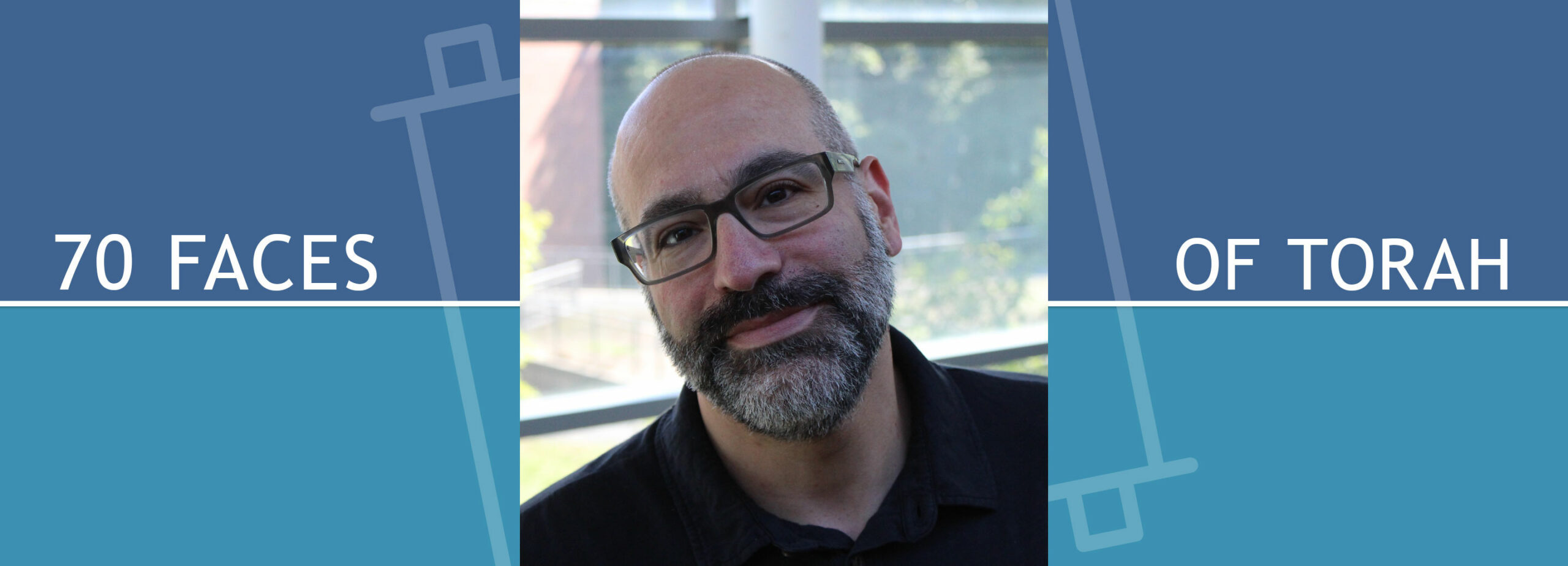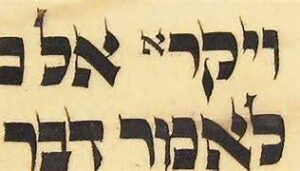Leviticus What is Ours to Do?
The “Humble” Aleph of Leviticus 1:1

Parashat Va’yikra (Leviticus 1:1-5:26)
“And he [YHWH] called to Moses from the Tent of Meeting…”

As one can see in the image above, the letter Aleph at the end of the word “Va’yikra—And He called,” is smaller than the rest of the letters. This oddity (like other instances of reduced or enlarged letters in the Hebrew Bible) has led to an outpouring of creative commentary throughout the ages.
One common interpretation is that the small Aleph is reflective of Moses’ humility. Even though he is a great prophet and leader, Moses does not develop an outsized ego. In fact, the Bible later describes him as “humbler than all other people on the face of the earth.” (Numbers 12:3) As we begin reading the third book of the Torah—the center point or heart of the “Five Books of Moses”—we are reminded of the core value of humility.
But humility is not the same as denigration. The great Hasidic master, Rabbi Levi Yitzhak of Berditchev (1740-1809), makes this point deftly through a careful reading of the verse just cited from the Book of Numbers. Why is Moses described as “humbler” than all other people? Because while they turned their gaze downward—to “the earth”—Moses looked up to the heavens. Meaning, Moses did not think of himself as a lowly creature, but in meditating on the vastness of creation, and his place in it, he came to an appropriate assessment of his stature. As the Berditchever states, “This is the rung of the true and holy tzaddik (righteous one), who comes to this level of humility through his contemplative gaze” upon the whole of the cosmos, including the angels above, who stand before the blessed Creator in “awe and fear.” Moses did not seek to aggrandize or belittle himself, but to position himself fittingly within the “great chain of being.”
In crafting this commentary on Moses, Rabbi Levi Yitzhak is, of course, exploring the meaning of humility for himself as a religious leader and for his community. In fact, Hasidic masters are commonly referred to as tzaddikim (plural form of tzaddik). What does it mean to be a humble seeker and/or leader? This master’s answer is that it requires one to develop a measured understanding of their place within their earthly and cosmic contexts.
Inspired by this insight, I find myself asking the following questions anew:
What is my current location?
Where do I wish to be?
How can I utilize my particular talents and skills to become the best possible version of myself, and in so doing, be of greater service to others?
It is noteworthy that God’s call to Moses at the beginning of Leviticus comes immediately after the Israelite leader has completed the great task of erecting the Tabernacle. In fact, in the closing lines of the Book of Exodus, we learn that, “the glory of YHWH” so filled the new sanctuary that Moses could not enter it. Furthermore, now that the Tabernacle has been built, it will be Aaron, the High Priest, and not Moses, who will serve as the chief actor in this sacred domain and in the ritual life of the Israelite community. This, too, requires Moses to demonstrate humility. He must make space for his brother to carry out his priestly duties. This is not an act of self-deprecation but one of thoughtful recognition of their respective leadership roles.
In reading the opening words of Leviticus—including contemplating the significance of the “humble” Aleph—we are invited to reflect on our place within our communities, past and present, and within the larger context of creation. And like Moses, even when we find ourselves outside of the sacred center (or offstage) we must listen intently for God’s call emerging from the “Tent of Meeting.” Each of us has a distinctive role to play in the unfolding cosmic drama; discerning what is ours to do—and what is not—is essential to this sacred service.
Rabbi Or N. Rose is the founding Director of the Miller Center for Interreligious Learning & Leadership of Hebrew College. His recent publications include With the Best of Intentions: Interreligious Misteps and Mistakes and Rabbi Zalman Schachter-Shalomi: Essential Teachings (both by Orbis Books).
Explore Graduate Programs Adult Learning Classes Support Our Work

